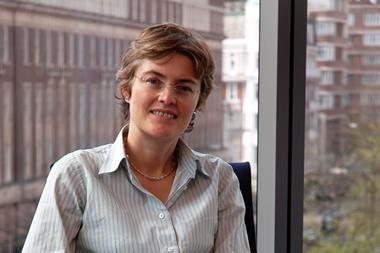Diversity, inclusion, fairness and equality are matters everyone is taking very seriously and while activity has been increasing, to date, the industry as a whole has lacked focus.

Therefore, a key intention of our inaugural RICS Diversity and Inclusion Conference last week was to help land, property and construction firms better understand that supporting a diverse and inclusive workforce is not only the right thing to do, but that research clearly shows that it makes business sense too.
Employee satisfaction and morale is generally far higher among diverse teams. The evidence shows that their wider skills mix enables them to perform better and deliver higher customer service levels. Employee satisfaction is often overlooked, but it should be a priority on every firm’s agenda: we must work together to attract and retain the brightest talent in our industry, particularly given the skills gap.
We recognise that one of the biggest obstacles to attracting more talent from as broad a base as possible is the influencers, such as teachers, parents and careers advisers. Many are not aware of the wide range of careers across our industry. Attracting young talent is something that the ‘Class of your Own’ project highlighted very successfully, showing delegates how it was working with school children to inspire careers in the built environment.
The conference also addressed opening and widening routes into the industry. For large parts of society, the option to earn as you learn is more feasible than building up student debt. Apprenticeships can overcome this barrier. We heard from one inspiring and enthusiastic CBRE apprentice - Wale Sanusi. And I am delighted the offer is being expanded in September with the new chartered surveying degree apprenticeships.
Going forward, if built environment firms are to create more diverse and inclusive workforces, they must adopt best-practice recruitment and retention methods that are supported by leadership and embedded within their cultures.
Quality Mark
With all these issues in mind, I was delighted to launch the RICS Inclusive Quality Mark at the conference. This is a major step forward for the sector and is already proving to be attractive.
The Quality Mark sees firms committing to adopting and continually improving across six key areas: leadership and vision, recruitment, staff development, staff retention, staff engagement and continuous development. We’ve had a great response to the initiative with many organisations - large and small - pledging their support.
Property Week’s Diversity Charter has very much helped pave the way for the RICS Inclusive Employer Quality Mark. The Quality Mark will lead on rewarding and sharing best practice and recognising and promoting the work of firms - whatever their size - who are striving towards creating an inclusive workforce.
And let’s not forget why this is so important; our world is changing rapidly. New technology is emerging and new disciplines are needed for growth areas such as infrastructure. Meanwhile, rapid urbanisation growth around the world is putting increased pressure on scarce resources. Surveyors’ specialist skills are in demand.
Our future and foresight work (www.rics.org/futures) has identified the consequences of growth being felt across the land, property and construction sectors. Putting it bluntly, we have to adapt to survive and companies must be ready to take advantage of new opportunities and deliver new services that society needs. I believe this means identifying and embracing the value of diversity and adopting an inclusive approach to staff attraction and retention.
As a body that represents many of the professional disciplines integral to these sectors, our conference was testament to the fact that we can play a number of important roles as a catalyst to help firms win the war for diverse talent and ensure we have the right skills needed to remain relevant in the future.
I recommend that any firm wanting to make the most of a diverse workforce sign up to the Quality Mark (www.rics.org/diversity), so together we can really push the industry forward. Far from the current situation where we are lagging behind other professions, we will shine and take the lead.
Louise Brooke-Smith was RICS president, 2014-15






























No comments yet